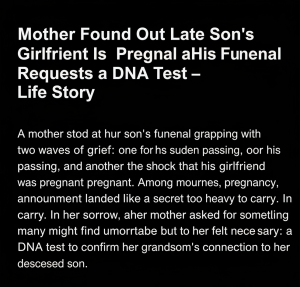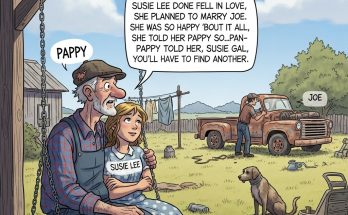A mother stood at her son’s funeral grappling with two waves of grief: one for his sudden passing, and another for the shock of learning that his girlfriend was pregnant. Among mourners, the pregnancy announcement landed like a secret too heavy to carry. In her sorrow, the mother asked for something many might find uncomfortable but to her felt necessary: a DNA test to confirm her grandson’s connection to her deceased son.

As the days passed, she navigated the mix of mourning and maternal instinct, struggling with the weight of both love and loss. The girlfriend cooperated, the test was done, and the results confirmed— the unborn child was indeed her son’s. For the family, it meant that part of him lived on, a fragile continuation of his legacy.
Yet, even with confirmation, there was no clean resolution. The family still wrestled with profound grief, with questions of how to honor both memory and future, loss and new life. The story stirred public discussion about what family looks like after tragedy, and whether responsibility and support should expand beyond death.


